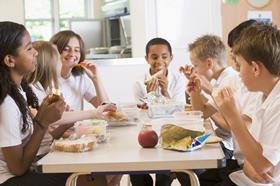
The new EU scheme to promote healthy eating among children will include the distribution of fruit, vegetables and milk products in schools, as well as dedicated educational programmes on nutrition and food production.
This scheme merges the existing projects that last year reached over 20m children. Although participation is optional, all 28 Member States indicated they will take part in the initiative in the 2017/2018 school year.
Phil Hogan, Commissioner for Agriculture and Rural Development, commented: 'I am very pleased that the new school scheme will be introduced tomorrow. The scheme provides valuable support to millions of European schoolchildren and thousands of farmers in every Member State. Such support has proven particularly important for farmers in recent years and the increased funding will enhance the value of this support. In addition, the new scheme meets my priority of simplification through the integration of the former school milk and vegetable schemes. Finally, I am happy to be involved with an initiative with Commissioners Andriukaitis and Navracsics to promote a healthy lifestyle and I am convinced that this scheme has a valuable part to play.'
The scheme will prioritise the distribution of fresh fruit, vegetables and drinking milk, with processed products including soup, fruit compotes, juice, yoghurts and cheese also handed out given approval by the national health authorities.
No added sugar, salt and fat are allowed unless the national health authorities permit limited quantities. Member States also have the option to top up the EU aid with national aid for financing the scheme.
The choice of products will apparently depend on health and environmental considerations, seasonality, variety and availability, with priority given to EU products. Member States may encourage local or regional purchasing, organic products, short supply chains, environmental benefits and agricultural quality schemes.
Of the €250m in agreed EU funding for the 2017–2018 school year, around €150m will be allocated for fruit and vegetables and €100m for milk.
“The new school scheme forms part of Commissioner Hogan's simplification agenda,” the European Commission stated in a press release. “It allows for greater synergies and efficiencies in the implementation of the new scheme, and complements other measures in the areas of health and education policies.”
Along with Sweden, the UK declined to participate in the scheme for fruit and vegetables for 2017/18, although it agreed to accept free school milk.



